 On the morning of February 26, in Hanoi, Prime Minister Pham Minh Chinh and other leaders attended the ASEAN Future Forum 2025 High-level Plenary Session. Here, the Prime Minister shared many strategic issues with ASEAN and the world such as strategic autonomy, maintaining a rules-based order, responding to challenges related to climate change, artificial intelligence, as well as the role and contributions of Vietnam.
On the morning of February 26, in Hanoi, Prime Minister Pham Minh Chinh and other leaders attended the ASEAN Future Forum 2025 High-level Plenary Session. Here, the Prime Minister shared many strategic issues with ASEAN and the world such as strategic autonomy, maintaining a rules-based order, responding to challenges related to climate change, artificial intelligence, as well as the role and contributions of Vietnam.
 On the morning of February 26, in Hanoi , Prime Minister Pham Minh Chinh and leaders of countries attended the plenary session of the ASEAN Future Forum 2025 - Photo: VGP/Nhat Bac
On the morning of February 26, in Hanoi , Prime Minister Pham Minh Chinh and leaders of countries attended the plenary session of the ASEAN Future Forum 2025 - Photo: VGP/Nhat Bac
Also attending the plenary session were President of Timor Leste José Ramos-Horta; Prime Minister of Malaysia, ASEAN Chair 2025 Anwar bin Ibrahim; Prime Minister of New Zealand Christopher Luxon.
In their speeches here, Malaysian Prime Minister and New Zealand Prime Minister Christopher Luxon both highly appreciated Vietnam's organization of the ASEAN Future Forum 2025; affirming that the theme "Building a united, inclusive and resilient ASEAN in a volatile world" is very suitable for the current international context.
ASEAN needs to study and refer to lessons from Vietnam
Malaysian Prime Minister Anwar bin Ibrahim assessed that in the context of the world and the region being at an important crossroads, a pivotal moment in the history of ASEAN and the world, a new status quo is taking shape, therefore the Forum plays a very important role.
 This year's ASEAN Future Forum has more than 600 delegates attending in person, including over 230 international delegates, an increase of more than 2.5 times compared to 2024 - Photo: VGP/Nhat Bac
This year's ASEAN Future Forum has more than 600 delegates attending in person, including over 230 international delegates, an increase of more than 2.5 times compared to 2024 - Photo: VGP/Nhat Bac
Currently, ASEAN is still a peaceful, safe region with the fastest economic growth in the world; ASEAN is entering a new era of innovation and transformation. However, amid competition and division, especially trade competition, geopolitical risks are increasing, bringing both opportunities and challenges. The Malaysian Prime Minister believes that ASEAN "must shine like a beacon of hope", consolidate its central role, enhance solidarity among members, build a sustainable supply chain, maintain its position in global trade, develop a green economy, etc.
He said that Malaysia and Vietnam will continue to strengthen cooperation, contributing to promoting this. In particular, the Malaysian Prime Minister said that ASEAN needs to study and refer to the lessons of Vietnam, especially in relations with the United States and China. ASEAN must develop substantive and balanced relations with major powers as well as with other countries; avoid dependence on one market.
At the same time, expressing his admiration for President Ho Chi Minh and the Vietnamese people's struggle for national liberation, the Malaysian Prime Minister said he really wanted to visit the famous site of Dien Bien Phu.
 Malaysian Prime Minister Anwar bin Ibrahim assessed that in the context of the world and the region being at an important crossroads, a pivotal moment in the history of ASEAN and the world, a new status quo is taking shape, therefore the Forum plays a very important role - Photo: VGP/Nhat Bac
Malaysian Prime Minister Anwar bin Ibrahim assessed that in the context of the world and the region being at an important crossroads, a pivotal moment in the history of ASEAN and the world, a new status quo is taking shape, therefore the Forum plays a very important role - Photo: VGP/Nhat Bac
He also appreciated Vietnam's strong vitality, resilient efforts and achievements in economic development, ensuring food security, industrialization, modernization, achieving GDP growth of more than 7% in 2024, and implementing a unique diplomatic policy. Vietnam has created a success story with a starting point from poverty, creating economic growth and abundant wealth, aiming to become a modern, advanced country.
Meanwhile, New Zealand Prime Minister Christopher Luxon emphasized the important role of the Asia-Pacific region, as the engine of world economic and trade development but also a hot spot of competition.
He said it is necessary to promote consultation, dialogue, principles and laws to prevent and manage risks, strongly support ASEAN's central role in the regional structure, and at the same time believe that this role needs to be constantly updated and adapted to the situation.
Assessing ASEAN as the most dynamic region in the world, the New Zealand Prime Minister said that his country is committed to maintaining and strengthening cooperation and improving relations with ASEAN, with many great opportunities for cooperation in trade, investment, people-to-people exchange, development cooperation and national security and defense.
 Assessing ASEAN as the most dynamic region in the world, New Zealand Prime Minister Christopher Luxon said his country is committed to maintaining and strengthening cooperation and improving relations with ASEAN - Photo: VGP/Nhat Bac
Assessing ASEAN as the most dynamic region in the world, New Zealand Prime Minister Christopher Luxon said his country is committed to maintaining and strengthening cooperation and improving relations with ASEAN - Photo: VGP/Nhat Bac
"We appreciate and thank Vietnam for its role as the coordinator of ASEAN-New Zealand relations. We want to upgrade our relationship with ASEAN to a comprehensive strategic partnership and never neglect this relationship," he said.
Next, Prime Minister Pham Minh Chinh, Prime Minister of Malaysia, Prime Minister of New Zealand and President of Timor Leste had a high-level Q&A.
Aspects of "strategic autonomy"
Answering the question about the significance of strategic autonomy for ASEAN and Vietnam, Prime Minister Pham Minh Chinh first thanked the leaders who attended the Forum, with their motivational and inspirational speeches.
 Prime Minister Pham Minh Chinh, Prime Minister of Malaysia, Prime Minister of New Zealand and President of Timor Leste have a high-level Q&A - Photo: VGP/Nhat Bac
Prime Minister Pham Minh Chinh, Prime Minister of Malaysia, Prime Minister of New Zealand and President of Timor Leste have a high-level Q&A - Photo: VGP/Nhat Bac
The Prime Minister affirmed that any country or organization needs to raise the issue of self-reliance, self-strengthening, and strategic initiative, demonstrated through a number of aspects.
In foreign relations, we must always maintain balance, treat partners fairly and friendly, create an environment of peace, stability, friendship, cooperation and development, based on the law.
Along with that, there must be real strength, the economy must develop, if the economy does not develop, it will fall behind and not be able to have strategic autonomy.
Third, national defense and security must be strengthened and enhanced in accordance with the situation. Of course, to strengthen national defense and security, the economy must develop.
Fourthly, regarding society, social policies ensure fairness and progress in a civilized society; ensure social security, support the disadvantaged on the principle of leaving no one behind, develop rapidly but sustainably, not sacrifice progress, fairness, social security and the environment to pursue mere economic growth.
 Prime Minister Pham Minh Chinh thanked the leaders for attending the Forum, with motivational and inspirational speeches - Photo: VGP/Nhat Bac
Prime Minister Pham Minh Chinh thanked the leaders for attending the Forum, with motivational and inspirational speeches - Photo: VGP/Nhat Bac
Along with that, we must develop culture, strengthen identity, and promote internal strength, because culture is an endogenous strength, an internal resource. Prime Minister Pham Minh Chinh gave an example, as the Malaysian Prime Minister mentioned, in the struggles for national liberation, Vietnam used the weak to defeat the strong, used the few to fight the many, and promoted people's war and guerrilla warfare.
Adding and sharing more after the Malaysian Prime Minister's answer to a question from a young delegate about the central role of ASEAN, Prime Minister Pham Minh Chinh emphasized that first of all, each country in ASEAN must have effective policies and actions for peace, cooperation and development in the world; then we synthesize the effectiveness of ASEAN countries to create motivation and inspiration for other countries and regions.
To promote ASEAN's central role, the Prime Minister said that ASEAN not only participates in and supports solutions and forums that bring peace, cooperation, development, happiness and prosperity to the people, but also must contribute to leading the game to the highest results.
The Prime Minister stated that it is necessary to promote ASEAN's central role based on the foundation of cooperative and partnership relations with 25 countries, especially major countries, and comprehensive strategic partnerships; thereby enhancing ASEAN's role in emerging issues such as war and peace, conflict resolution, poverty reduction, climate change, artificial intelligence, etc.
 The Prime Minister stated that it is necessary to promote ASEAN's central role based on the foundation of cooperative and partnership relations with 25 countries, especially major countries, and comprehensive strategic partnerships - Photo: VGP/Nhat Bac
The Prime Minister stated that it is necessary to promote ASEAN's central role based on the foundation of cooperative and partnership relations with 25 countries, especially major countries, and comprehensive strategic partnerships - Photo: VGP/Nhat Bac
The Prime Minister believes that young people need to study, improve their capacity, qualifications, knowledge, have the mindset, approach, and methodology to solve problems in the most effective and elegant way, bringing benefits to themselves, to the community of nations and the world. The Prime Minister hopes that young people will become global citizens and each young person must be an ambassador of peace, development and prosperity for each country, each community, for themselves and for this world.
Design rules, respect rules and enforce them effectively
Answering a question about rules in international relations, Prime Minister Pham Minh Chinh emphasized that national and world governance must be based on rules. We must design rules, respect rules and implement them effectively.
Sharing about the concept of "rules-based order", the Prime Minister said that the United Nations Charter and international law on this are clear, with some basic contents.
 Malaysian Prime Minister Anwar bin Ibrahim speaks at the Forum - Photo: VGP/Nhat Bac
Malaysian Prime Minister Anwar bin Ibrahim speaks at the Forum - Photo: VGP/Nhat Bac
The first is to respect the independence, sovereignty, unity and territorial integrity of countries; to resolve disputes by peaceful means, not to use force or threaten to use force in international relations.
Second, the law must respect human rights, people are born with the right to life, the right to liberty, the right to pursue happiness. These are rights that no one can violate so that people can develop freely, equally, meeting the common requirements of nations as well as each person.
Third, we must live to love, help, and respect each other with the principle of equality, all develop, and no one is left behind.
More specifically, in ASEAN, the Prime Minister said that ASEAN also has rules and principles such as solidarity and unity in diversity; neutrality, for the common good; respecting countries when actively contributing to ASEAN's development; flexibly responding to sensitive regional and international issues; helping each other, developing together, bringing peace, stability, cooperation, and development in the region, bringing benefits to people living in prosperity and happiness.
The Prime Minister said these are principles that all ASEAN countries share and agree on, and every year leaders meet and discuss how to make each year better than the previous year, and make the people happier and more prosperous than the previous year.
 Timor Leste President José Ramos-Hort speaks at the Forum - Photo: VGP/Nhat Bac
Timor Leste President José Ramos-Hort speaks at the Forum - Photo: VGP/Nhat Bac
Humans must adapt and overcome the negative side of information technology.
Responding to a question about ensuring network security, Prime Minister Pham Minh Chinh said that all developments in science and technology in general, information technology and artificial intelligence in particular, have negative aspects that we must adapt to, in which the negative aspect of information technology is the issue of network security.
Considering that artificial intelligence is developed from human intelligence, the Prime Minister emphasized that we must have solutions to adapt to and overcome the negative aspects of information technology as well as the negative aspects of artificial intelligence, promoting the positive aspects and limiting the negative aspects of information technology and artificial intelligence.
The Prime Minister said that Vietnam being chosen by the United Nations to host the upcoming signing ceremony of the United Nations Convention against Cybercrime (Hanoi Convention) shows Vietnam's role, as well as its adaptation to cybersecurity issues and possibly issues related to artificial intelligence.
 For young people, the Prime Minister called on young people to participate in preserving this world to have a bright, green, clean, and beautiful life for themselves, for the community, for the region, and all of humanity - Photo: VGP/Nhat Bac
For young people, the Prime Minister called on young people to participate in preserving this world to have a bright, green, clean, and beautiful life for themselves, for the community, for the region, and all of humanity - Photo: VGP/Nhat Bac
Answering a question from a young delegate about climate change, Prime Minister Pham Minh Chinh stated that the world is facing many difficult problems such as population aging, resource depletion, and extreme climate change.
Regarding the solution, the Prime Minister said that climate change is a global, people-wide, comprehensive issue, so there must be a global, people-wide, comprehensive, inclusive approach.
Regarding the solution, we must promote international solidarity, all working together to solve the problem, because no country can solve it alone. "The world is developing unevenly, there are developed countries, developing countries, and underdeveloped countries. We call on the international community and developed countries to help developing and underdeveloped countries in five areas: Institutional building, technology transfer, financial incentives, human resource training, and smart governance in current conditions," the Prime Minister shared.
To young people, the Prime Minister called on young people to participate in preserving this world to have a bright, green, clean and beautiful life for themselves, for the community, for the region and all of humanity.
Regarding some of Vietnam's efforts and contributions in responding to climate change, the Prime Minister said that Vietnam is developing green energy, green transportation, green agriculture, selling carbon credits, and encouraging afforestation. In particular, Vietnam is implementing a program of 1 million hectares of high-quality, low-emission rice in the Mekong Delta, the first major project in the world in this field, contributing to the development of green agriculture and ensuring world food security.
*After listening to the Malaysian Prime Minister, the New Zealand Prime Minister and the President of Timor Leste answer questions and share more, Prime Minister Pham Minh Chinh said that Vietnam always supports Malaysia's role as ASEAN Chair 2025, hoping that the great ideas of the Malaysian Prime Minister - ASEAN Chair 2025 will be shared, implemented and bring high efficiency, especially finding solutions to the difficult problems and challenges of the region.
With Timor Leste, the Prime Minister affirmed that Vietnam supports Timor Leste to soon become a member of ASEAN.
Regarding New Zealand, the Prime Minister said that Vietnam supports the upgrading of its relations with ASEAN. The New Zealand Prime Minister is currently on an official visit to Vietnam to bring the relationship to a new height. On this occasion, Prime Minister Pham Minh Chinh respectfully thanked New Zealand for supporting Vietnam in training human resources, especially in English, especially during the times when Vietnam was previously embargoed.
The ASEAN Future Forum (AFF) is an initiative announced by Prime Minister Pham Minh Chinh at the 43rd ASEAN Summit (Jakarta, Indonesia, September 2023). Following the success of the first Forum in 2024, this year's Forum with the theme "Building a united, inclusive and resilient ASEAN in a changing world" will see the participation of many leaders of ASEAN countries and partners, leaders of ministries, sectors and localities of Vietnam, and many prestigious scholars at home and abroad.
This year's Forum has more than 600 delegates attending in person, including over 230 international delegates, an increase of more than 2.5 times compared to 2024. In particular, this year's Forum is honored to have the presence of President of Timor Leste José Ramos-Horta, Prime Minister of Malaysia, ASEAN Chair 2025 Dato' Seri Anwar bin Ibrahim, Prime Minister of New Zealand Christopher Luxon, Secretary General of ASEAN Kao Kim Hourn; along with video messages from the Prime Minister of Thailand, President of the European Commission and Deputy Secretary-General of the United Nations; over 10 Deputy Prime Ministers and Ministers of countries attending in person and sending video messages, 160 diplomatic delegates (including 40 Ambassadors), and 230 domestic delegates (including 20 leaders of ministries, branches, 10 leaders of provinces and cities). These are "speaking numbers", demonstrating the interest and response of ASEAN member countries as well as international friends towards AFF./ .
Source: baochinhphu.vn
Source: https://baocamau.vn/phien-toan-the-cap-cao-dien-dan-tuong-lai-asean-nam-2025-a37465.html


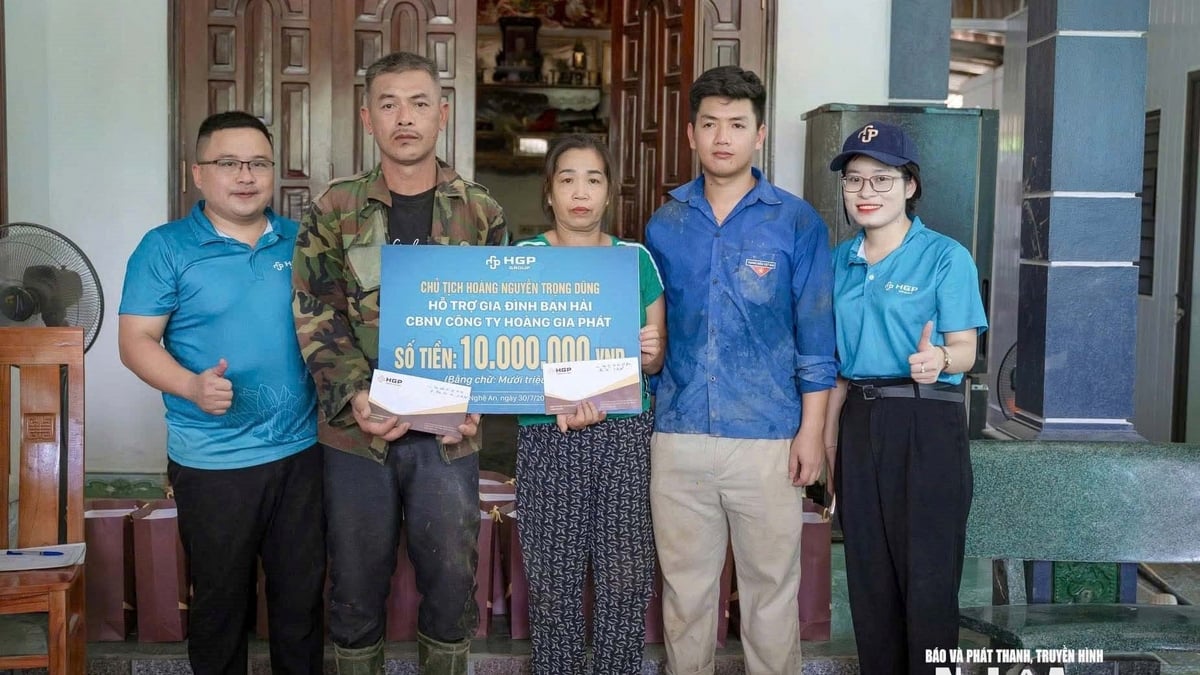
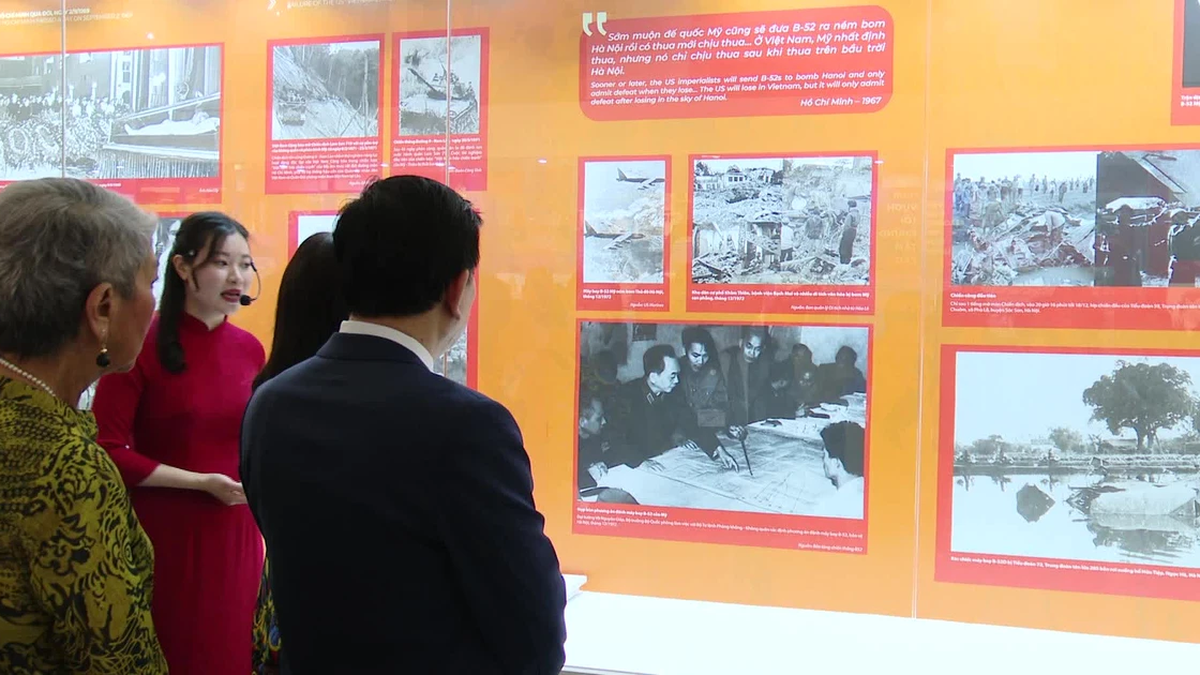

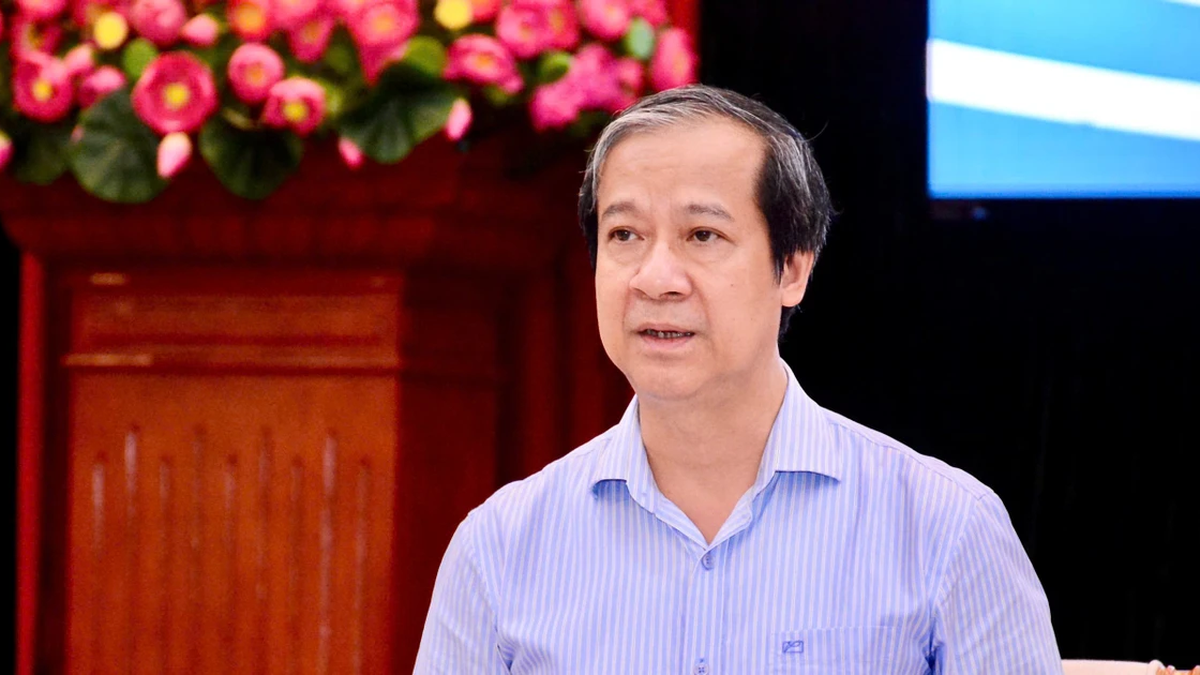
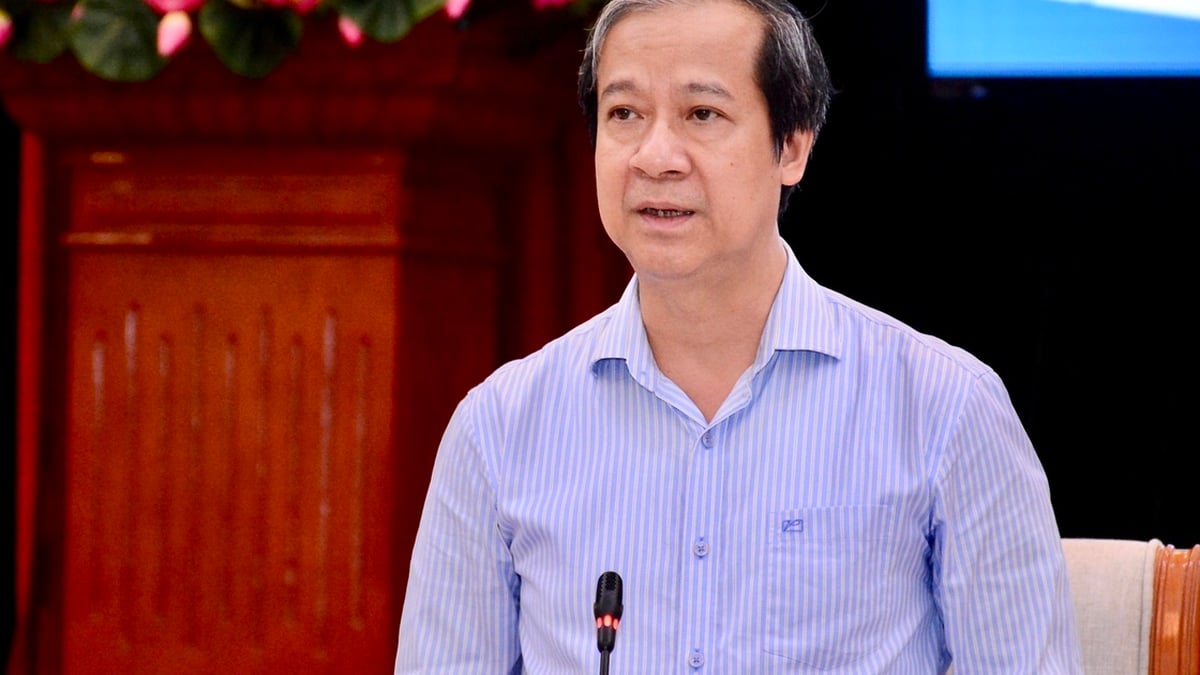
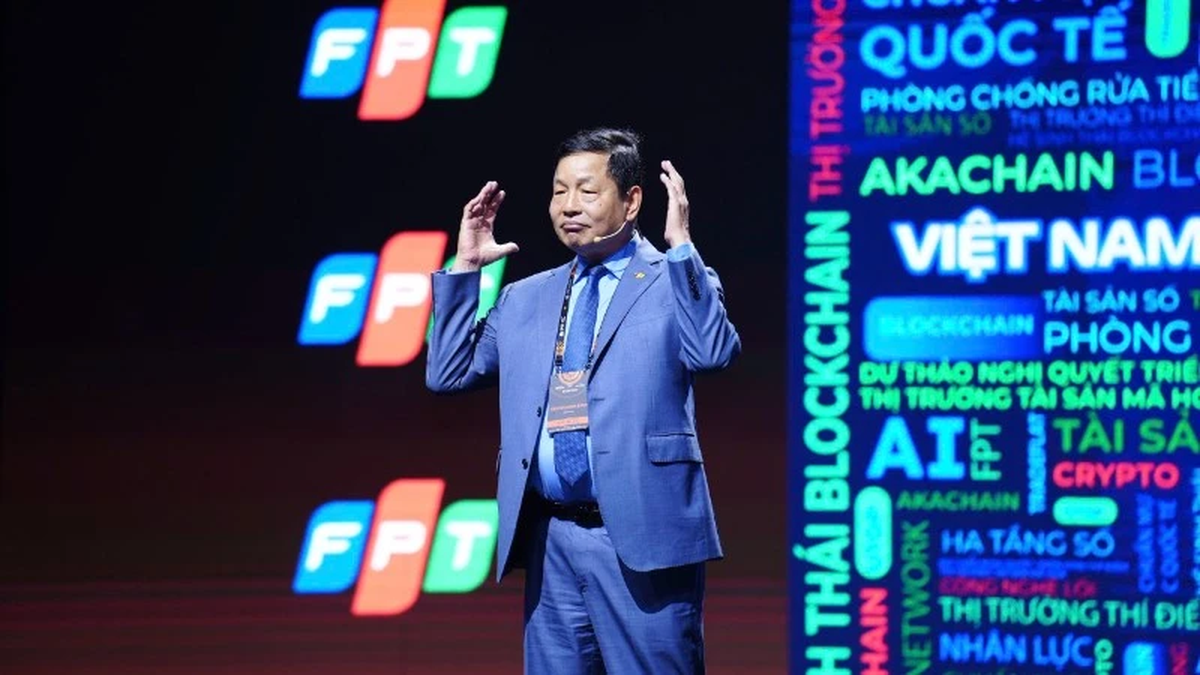
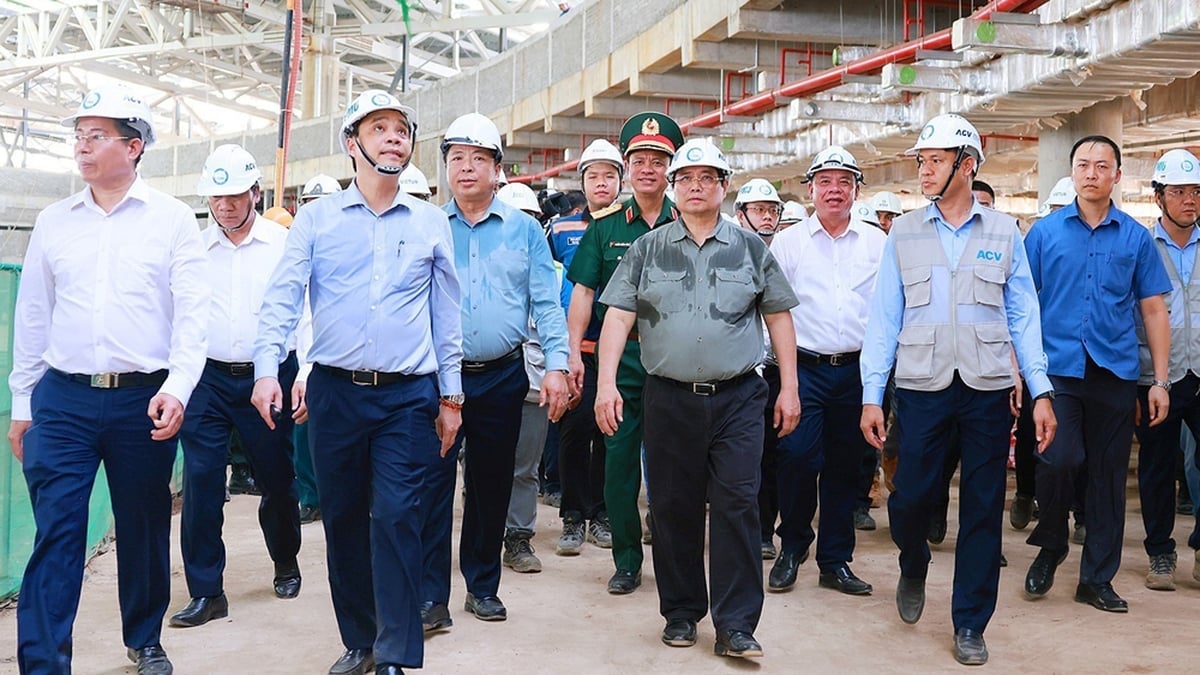
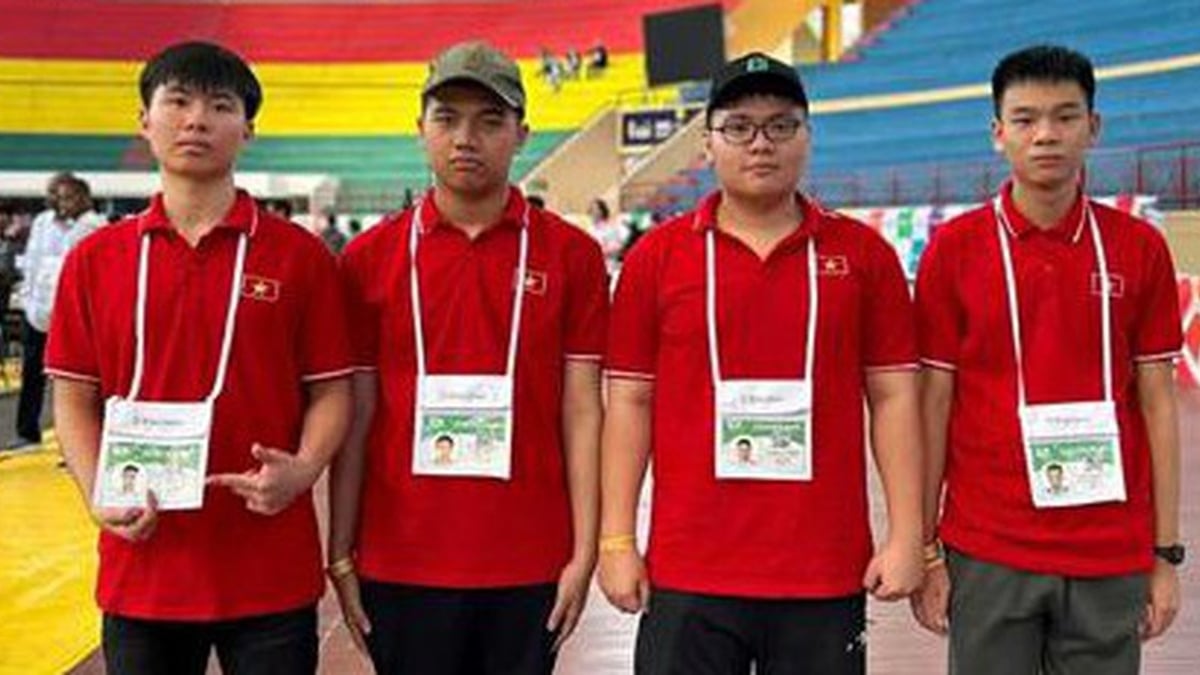
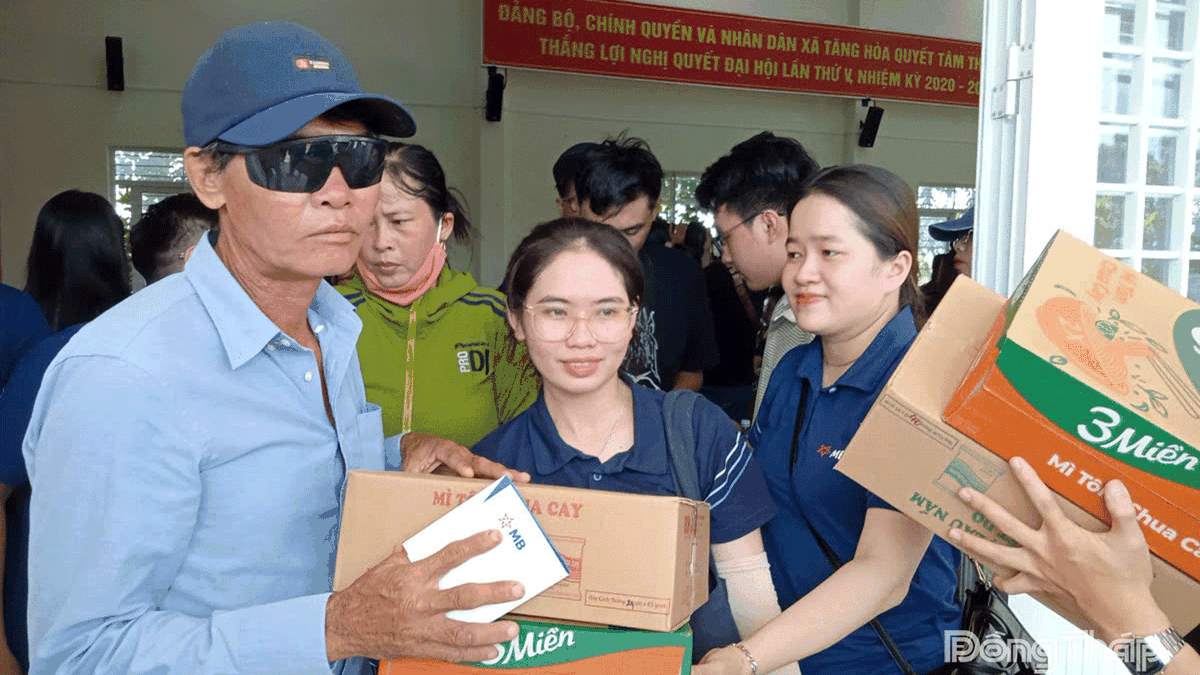























































































Comment (0)